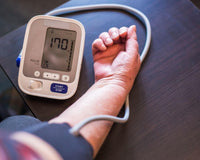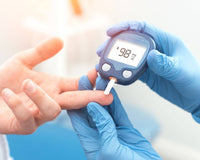Hydroxychloroquine Dosage, Uses, Side Effects, And Interactions
Hydroxychloroquine is a prescription medication that is able to treat malaria and prevent infection. It is available as both a generic drug and as a brand name medication Plaquenil. In this article, we discuss the dosage, uses, side effects, and interactions of hydroxychloroquine. We also answer questions such as is hydroxychloroquine an immunosuppressant?
What Is Hydroxychloroquine?
Hydroxychloroquine is a prescription medication that can treat malaria and prevent infection from malaria.
Hydroxychloroquine Uses
Hydroxychloroquine is used to treat malaria. It is also used to prevent malaria infection in areas or regions where it is known that other medicines may not work. Hydroxychloroquine may also be used to treat coronavirus (COVID-19) in certain hospitalized patients.
Is Hydroxychloroquine An Immunosuppressant?
How To Take Hydroxychloroquine
Take hydroxychloroquine as directed by a medical professional or doctor.
Swallow the whole tablet whole. Do not crush, break, or chew it. You should take this medicine with meals, unless otherwise directed by your doctor.
How To Take Hydroxychloroquine For Malaria
For patients taking hydroxychloroquine for malaria, instructions may be different.
Your doctor may want you to start taking hydroxychloroquine at least two weeks before you travel to an area where there is a chance of getting malaria. This will help you to see how you react to the medicine. Also, it will allow time for your doctor to change to another medicine if you have a reaction to this medicine.
Hydroxychloroquine Dosage
Your dosage of hydroxychloroquine may differ depending on a variety of factors, including the following:
- Your age
- Your weight
- Condition being treated
- Severity of your condition
Dosage For Prevention Of Malaria
Adult: 400 mg once a week on the same day of each week starting 2 weeks before traveling to an area where malaria occurs, and continued for 4 weeks after leaving the area.
Dosage For Arthritis
Adult: 400 to 600 milligrams taken as a single dose or in two divided doses per day. Then, 200 mg once a day or 400 mg taken as a single dose or in two divided doses per day. Your doctor may adjust your dose if needed.
Dosage For Treatment Of Lupus
Adult: 200 mg once a day or 400 mg taken once a day or in two divided doses.
Side Effects Of Hydroxychloroquine
Like most medications, hydroxychloroquine does come with a list of associated side effects, some of which are less common and more serious than others.
Common Side Effects
Most side effects are relatively common and should disappear within a few days.
- Headache
- Dizziness
- Dark urine
- Decreased urination
- Dilated neck veins
- Loss of appetite
- Diahrrea
- Nausea
- Stomach pain
- Vomiting
- Rash
- Sore throat
- Stomach pain
- Minor weight gain
If these side effects are mild, they should disappear within a few days.
Serious Side Effects
Other side effects are more serious and may require medical attention. If your symptoms are especially severe, consult a licensed doctor. If you fear your symptoms may be life-threatening, call 9-11.
- Bleeding gums
- Blindness
- Black, tarry stools
- Chills
- Cold sweats
- Confusion
- Difficulty seeing at night
- Fainting
- Fast, pounding heartbeat
- Inability to move eyes
- Loss of hearing
- Pale skin
- Seizures
- Red skin lesions
- Swelling of the eye
- Unusual bleeding or bruising
- Yellowing eyes or skin
Disclaimer: At ManifestRX our goal is to provide you with the most relevant and current information. Unfortunately, because drugs affect each individual differently, we cannot guarantee that this information includes all possible side effects.
How Does Hydroxychloroquine Work?
The mechanism of action of hydroxychloroquine involves the suppression of toll-like reactors, which exist on the surface of endosomes and help induce immune responses.
Interactions Of Hydroxychloroquine
When taking hydroxychloroquine, it is important to be aware of all possible interactions. Some interactions of hydroxychloroquine only need minor monitoring, while others can be quite serious. The following is an extensive (but not absolutely complete) list of medications and products that may interact with hydroxychloroquine.
Medications That Can Affect Heart Rhythm
Some medications, including hydroxychloroquine, can affect your heart rhythm and lead to abnormal heartbeats. Hydroxychloroquine may cause arrhythmias by increasing the length of the QT interval. The QT interval is a period of time when the heart rests after beating.
Diabetes Medications
Hydroxychloroquine can decrease blood sugar. Many diabetes medications help treat diabetes also by decreasing blood sugar. As such, if you take hydroxychloroquine in conjunction with diabetes medication, your blood pressure may become dangerously low.
Medications That Increase Seizure Risk
Hydroxychloroquine can make seizures more likely. Combining hydroxychloroquine with other medications that increase your risk for seizures can be quite dangerous. These medications include, but are not limited to, the following:
- Tramadol
- Bupropion
- Clozapine
- Diphenhydramine
Hydroxychloroquine Dosage, Uses, Side Effects, And Interactions: Summary
Hydroxychloroquine is a prescription medication that is able to treat malaria and prevent infection. It is available as both a generic drug and as a brand name medication Plaquenil.








